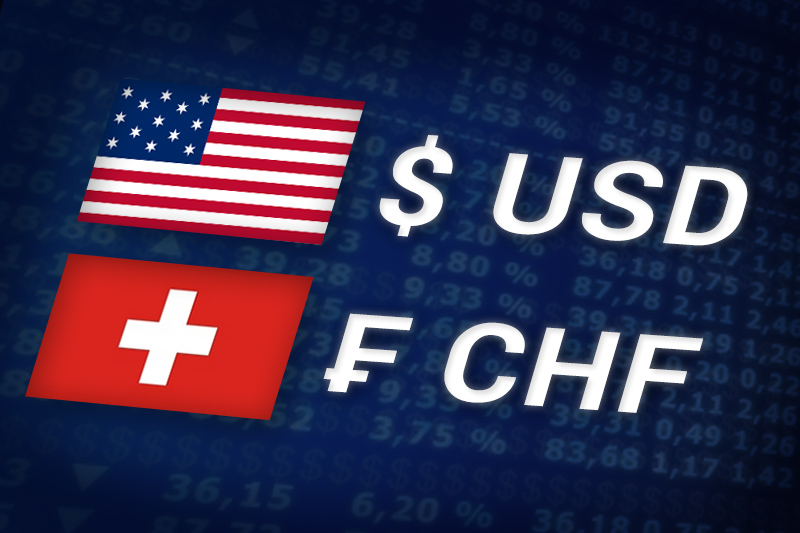Who is Kevin Hassett? Wolfe looks at the Trump ally tipped to become Fed Chair.
Investing.com – The U.S. dollar erased modest gains against the Swiss franc on Wednesday, pulling back from the daily high after remarks by the head of the European Commission eased concerns over the debt crisis in the euro zone.
USD/CHF retreated from 0.8853, the daily high, to hit 0.8791 during European morning trade, slipping 0.13%.
The pair was likely to find short-term support at 0.8705, last Friday’s low and resistance at 0.8879, Tuesday’s high and an almost four-month high.
Market sentiment was boosted after European Commission President Jose Manuel Barroso said the commission would soon present options for the introduction of euro area bonds, through which the 17 euro zone member states could jointly issue debt.
However, he warned that the measure alone would not be enough to end the regions’ debt crisis.
In Switzerland, government data showed that producer and import prices dropped by the most in 33 months in August, on the back of the stronger franc and lower oil prices.
The Swiss Federal Statistics Office said the producer and import price index fell 1.2% from the previous month, the steepest decline since November 2008 and was down 1.9% year-on-year.
Analysts had forecast declines of 1.1% on the year and 0.3% on the month.
Elsewhere, the Swissie was trading close to its exchange rate target against the euro, with EUR/CHF dipping 0.06% to hit 1.2034.
Later in the day, Greek Prime Minister George Papandreou was expected to hold a conference call with German Chancellor Angela Merkel and French President Nicolas Sarkozy, to discuss developments in Greece.
Meanwhile, the U.S. was to produce official data on producer price inflation and retail sales.
USD/CHF retreated from 0.8853, the daily high, to hit 0.8791 during European morning trade, slipping 0.13%.
The pair was likely to find short-term support at 0.8705, last Friday’s low and resistance at 0.8879, Tuesday’s high and an almost four-month high.
Market sentiment was boosted after European Commission President Jose Manuel Barroso said the commission would soon present options for the introduction of euro area bonds, through which the 17 euro zone member states could jointly issue debt.
However, he warned that the measure alone would not be enough to end the regions’ debt crisis.
In Switzerland, government data showed that producer and import prices dropped by the most in 33 months in August, on the back of the stronger franc and lower oil prices.
The Swiss Federal Statistics Office said the producer and import price index fell 1.2% from the previous month, the steepest decline since November 2008 and was down 1.9% year-on-year.
Analysts had forecast declines of 1.1% on the year and 0.3% on the month.
Elsewhere, the Swissie was trading close to its exchange rate target against the euro, with EUR/CHF dipping 0.06% to hit 1.2034.
Later in the day, Greek Prime Minister George Papandreou was expected to hold a conference call with German Chancellor Angela Merkel and French President Nicolas Sarkozy, to discuss developments in Greece.
Meanwhile, the U.S. was to produce official data on producer price inflation and retail sales.
